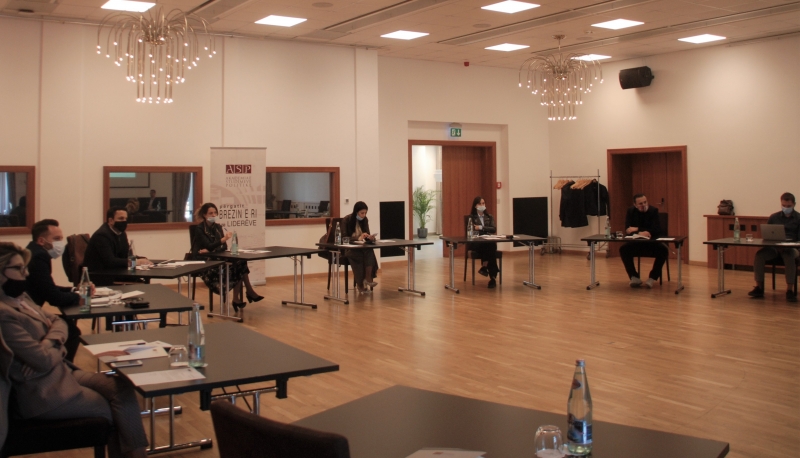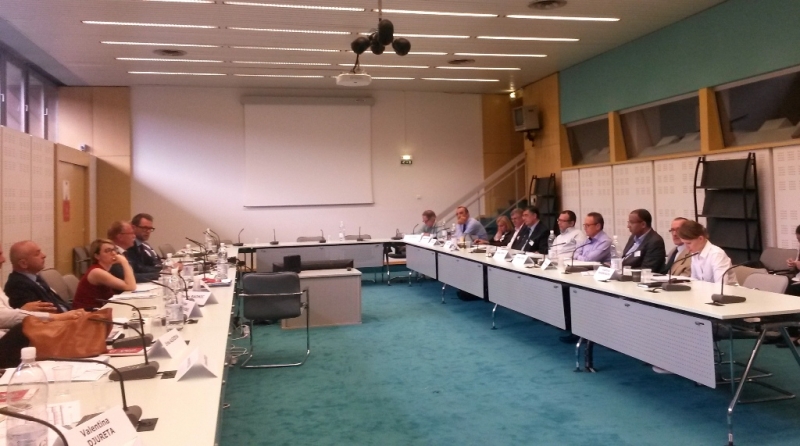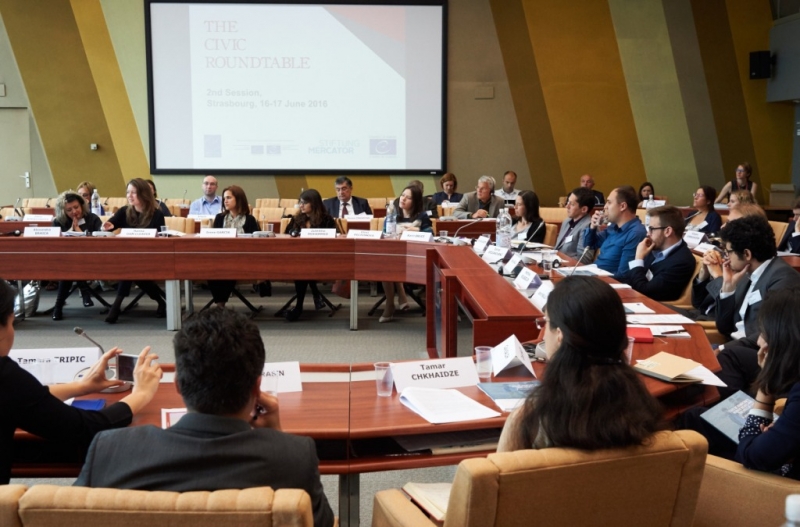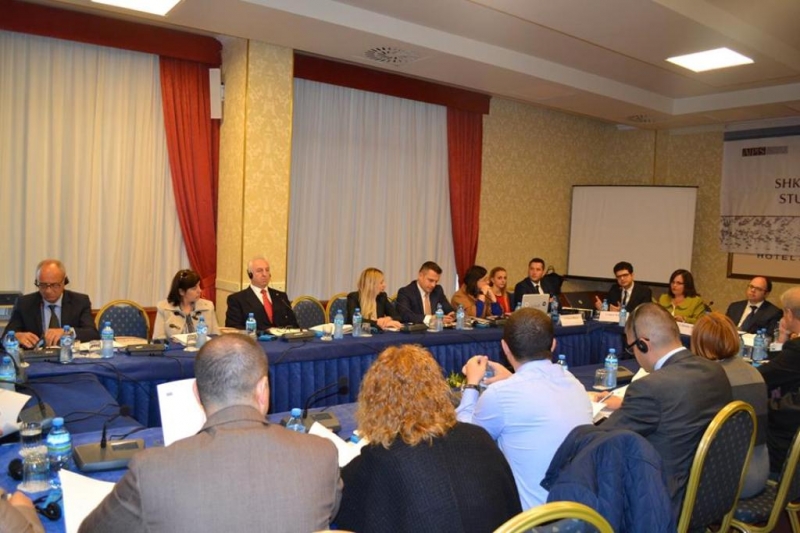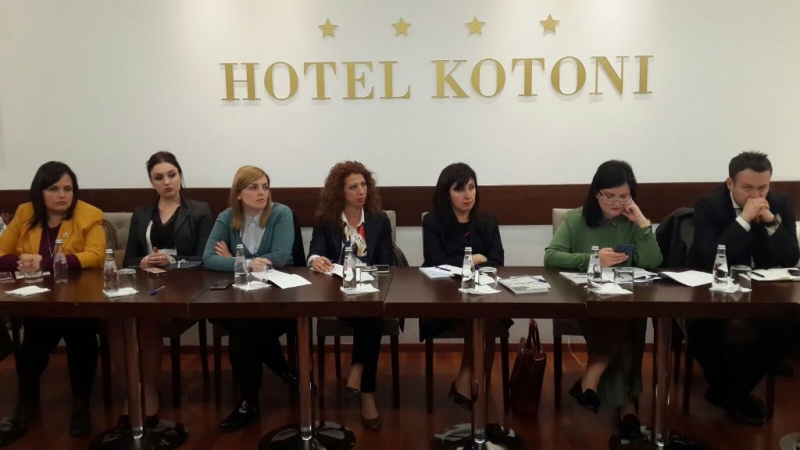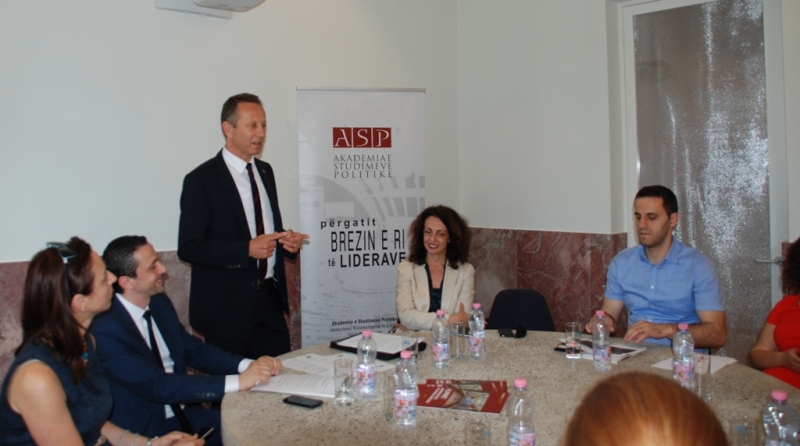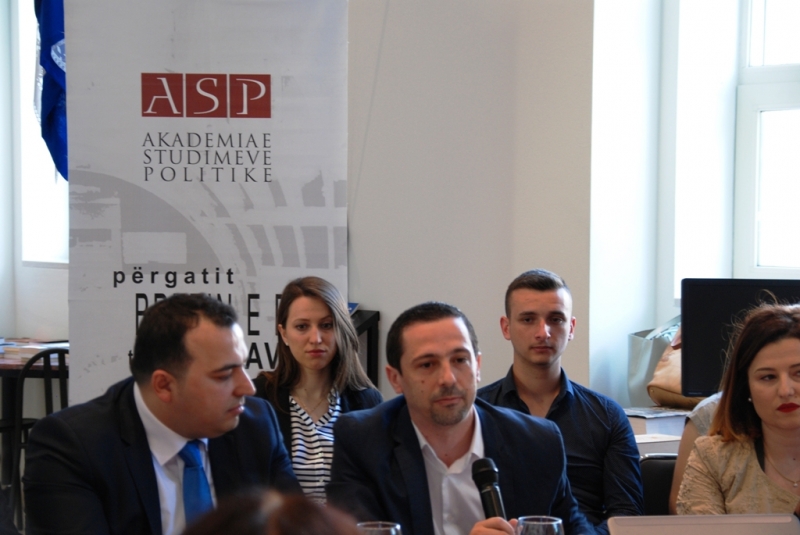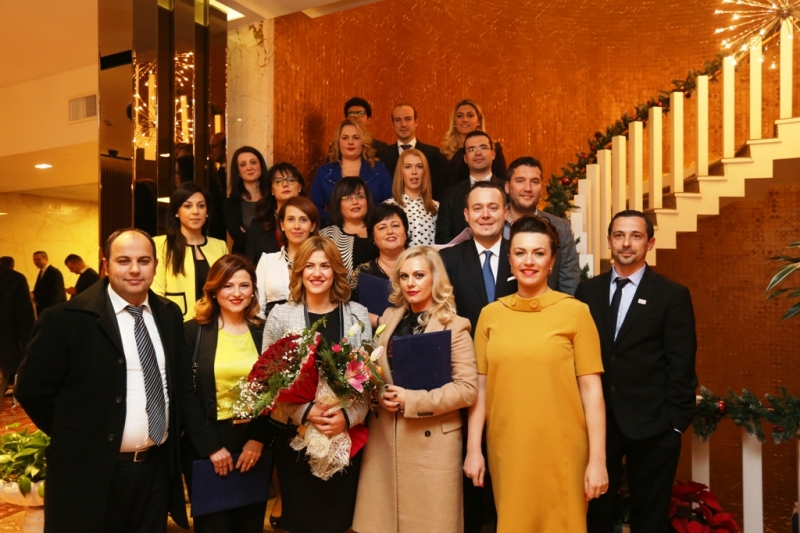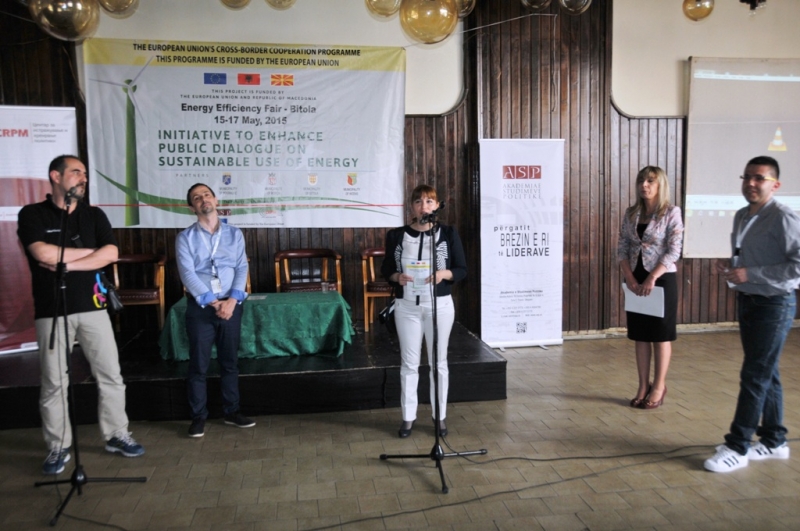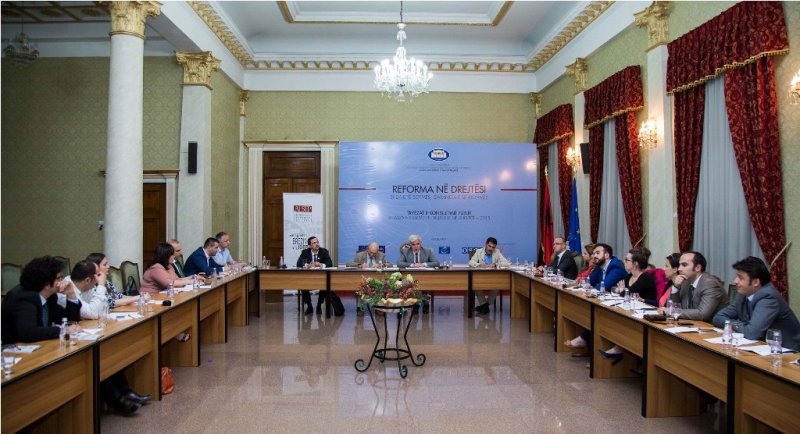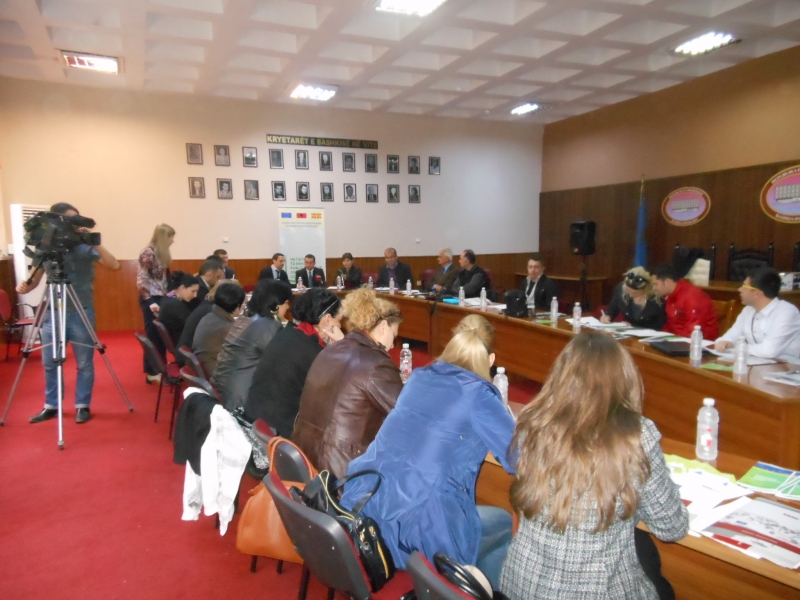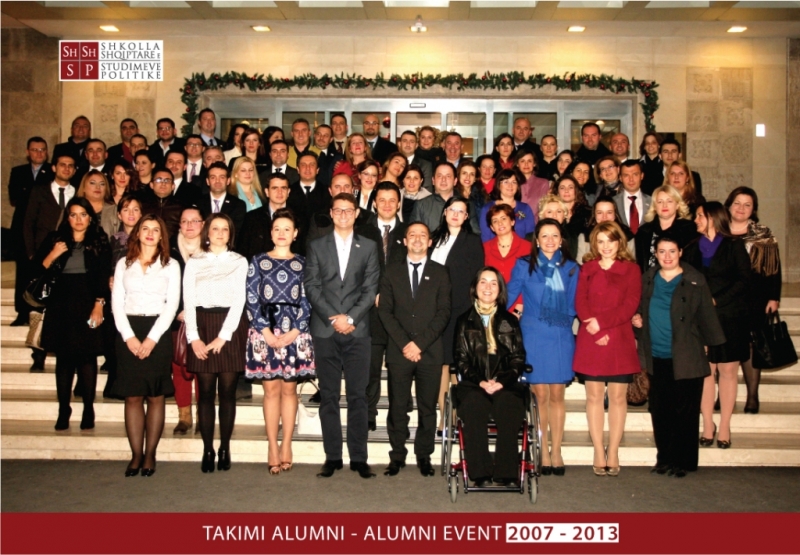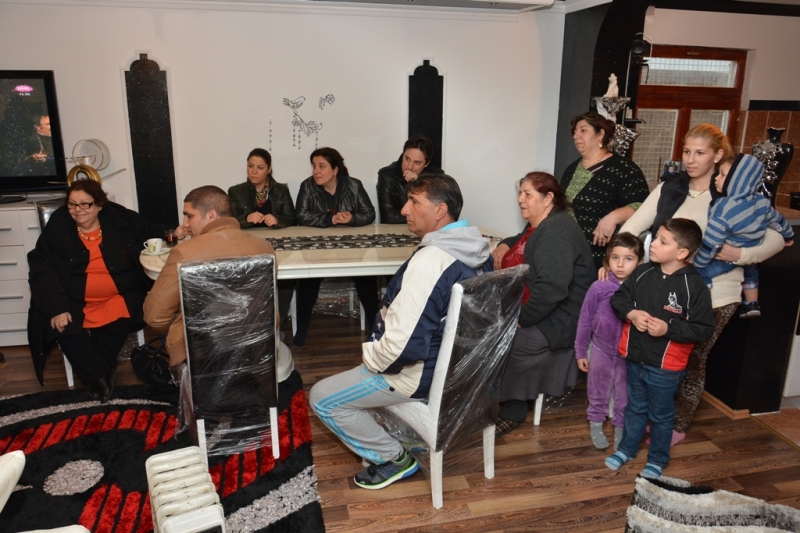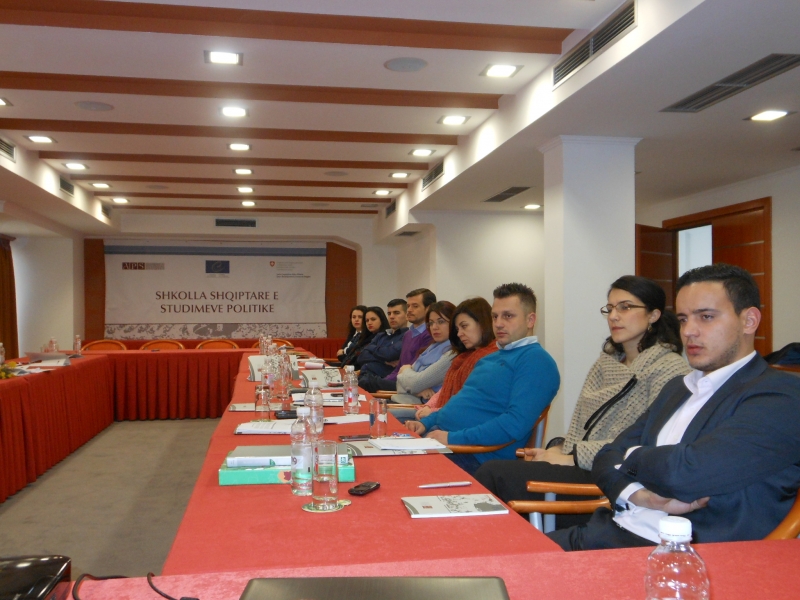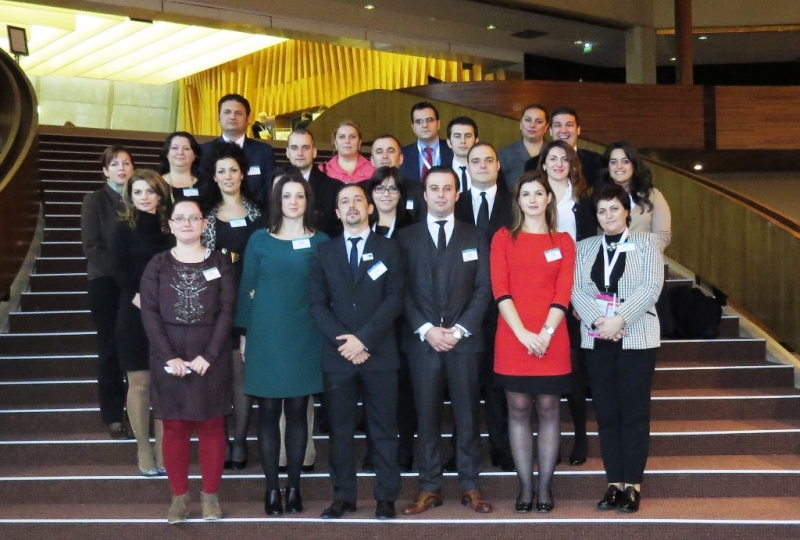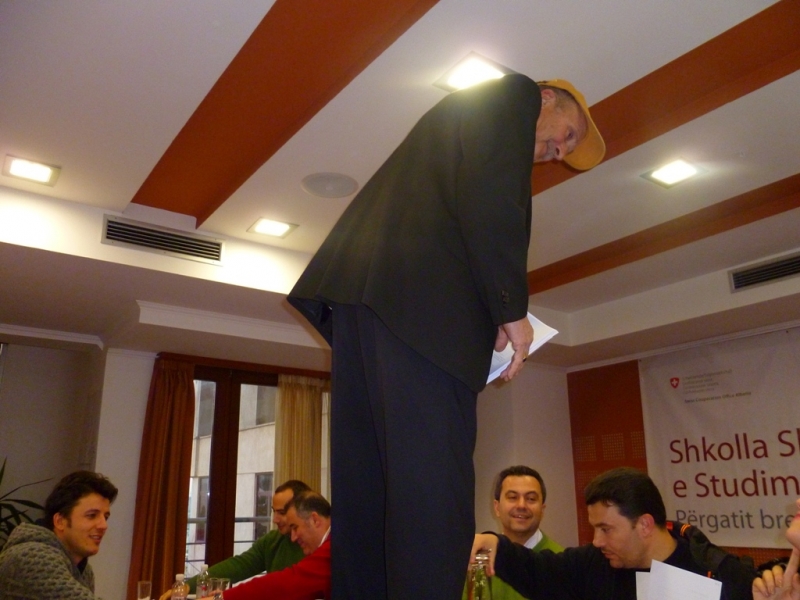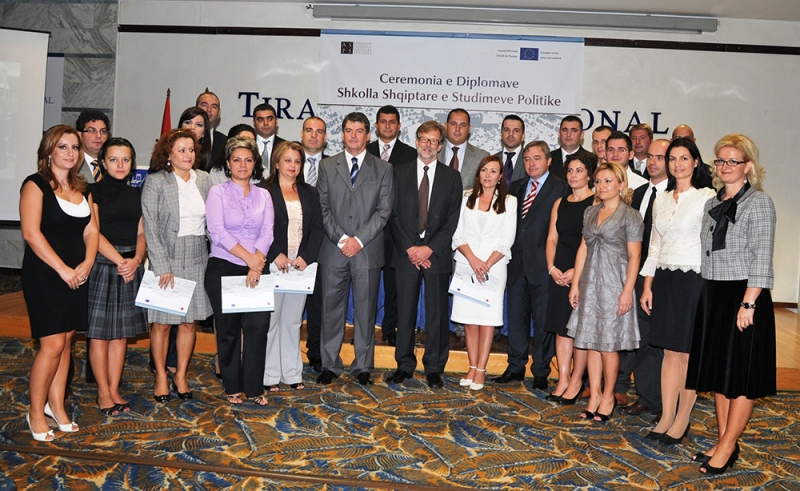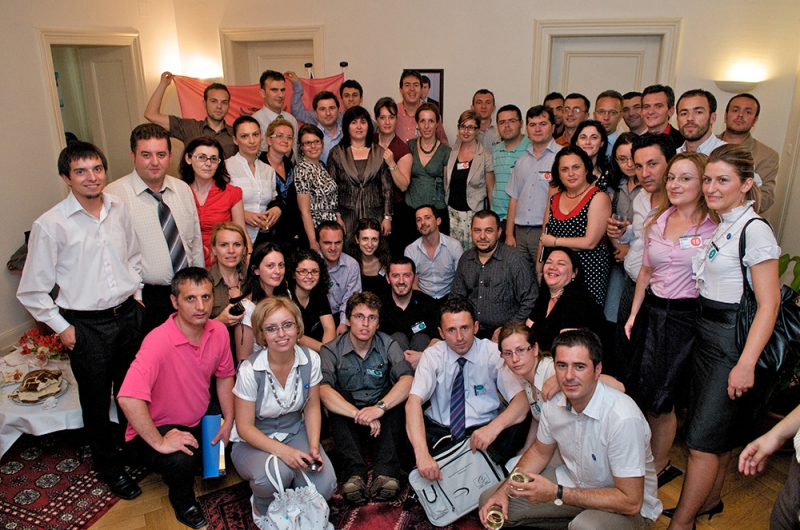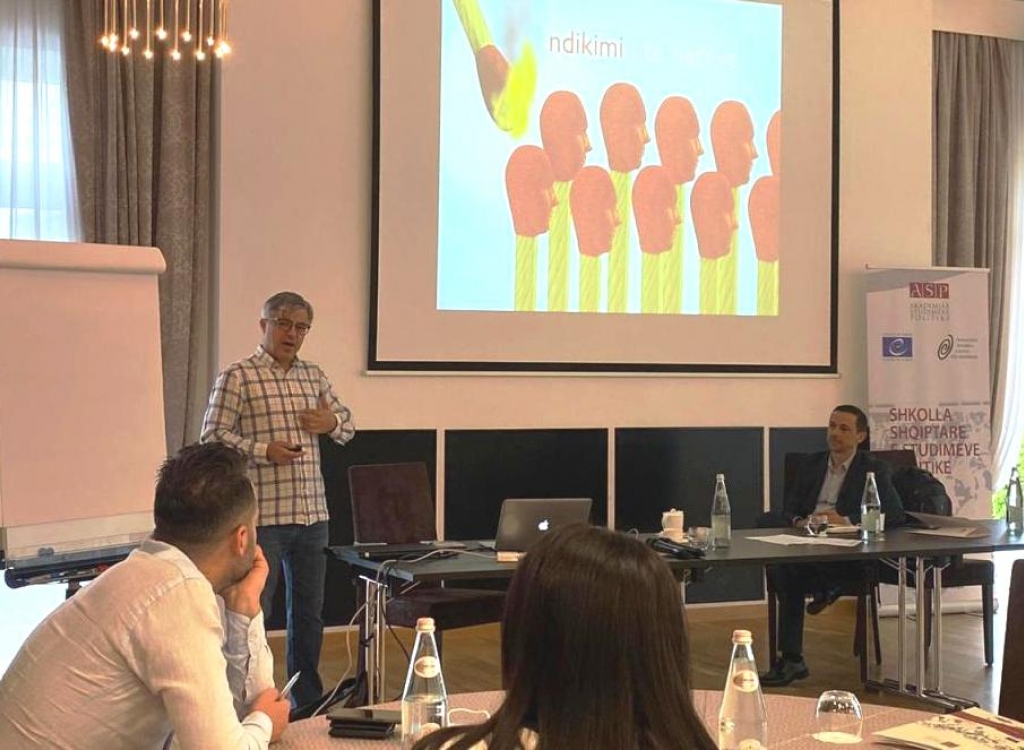
Friday, September 25, 2020
The second national course of the Albanian School of Political Studies on "Electoral systems and political communication" took place on 25-26 September 2020, at Rogner Hotel in Tirana. The topic of the course, which is related to the current electoral reform in the country, aimed to deepen the knowledge and arguments of the participants regarding "hot topics" as open lists of candidates or a possible change of the electoral system. The School Program is implemented this year with the support of the Council of Europe and the Open Society Foundation for Albania, as well as a cooperation with the project 'Strong Municipalities' of Helvetas-Swiss Intercooperation Albania, for the support of five women members of municipal councils.
Mr. Florian Hobdari, the OSCE Presence's National Electoral Reform Officer, presented on the first day of the course an analysis of the recommendations of the OSCE / ODIHR reports on the elections in Albania. The discussion also helped to shed some light on the progress of the current electoral reform and the role of the international factor in reaching a consensus on this reform.
The discussion on electoral systems was further completed thanks to the session of the politician and one of the most experienced experts in electoral reforms, Mr. Kastriot Islami. His presentation of the problems encountered in different electoral systems in the last 30 years and those of the current system were highly appreciated by the participants to better understand the current policy discourse on targeted electoral reform.
Political scientist Afrim Krasniqi also addressed in this course the topic of "Career in political parties", closely related to internal party democracy, as a prerequisite to guarantee a better representation of citizens and the quality of lists of candidates.
The second module of the course focused on political communication and election campaigns. Mr. Neritan Sejamini, public policy expert, brought a critical analysis on the communication strategies of political parties, as an important factor for election campaigns and election results. Political communication techniques were further complemented by an online discussion from the USA with political consultant Jim Arkedis, with over 15 years of experience in US political campaigns. Mr. Arkedis brought an overview of the messages and strategies being used by candidates in the US presidential election campaign, providing a comparative approach to the communication experience in Albania.
Participants highly evaluated the best of national and international practice provided by the guest lectures invited.














